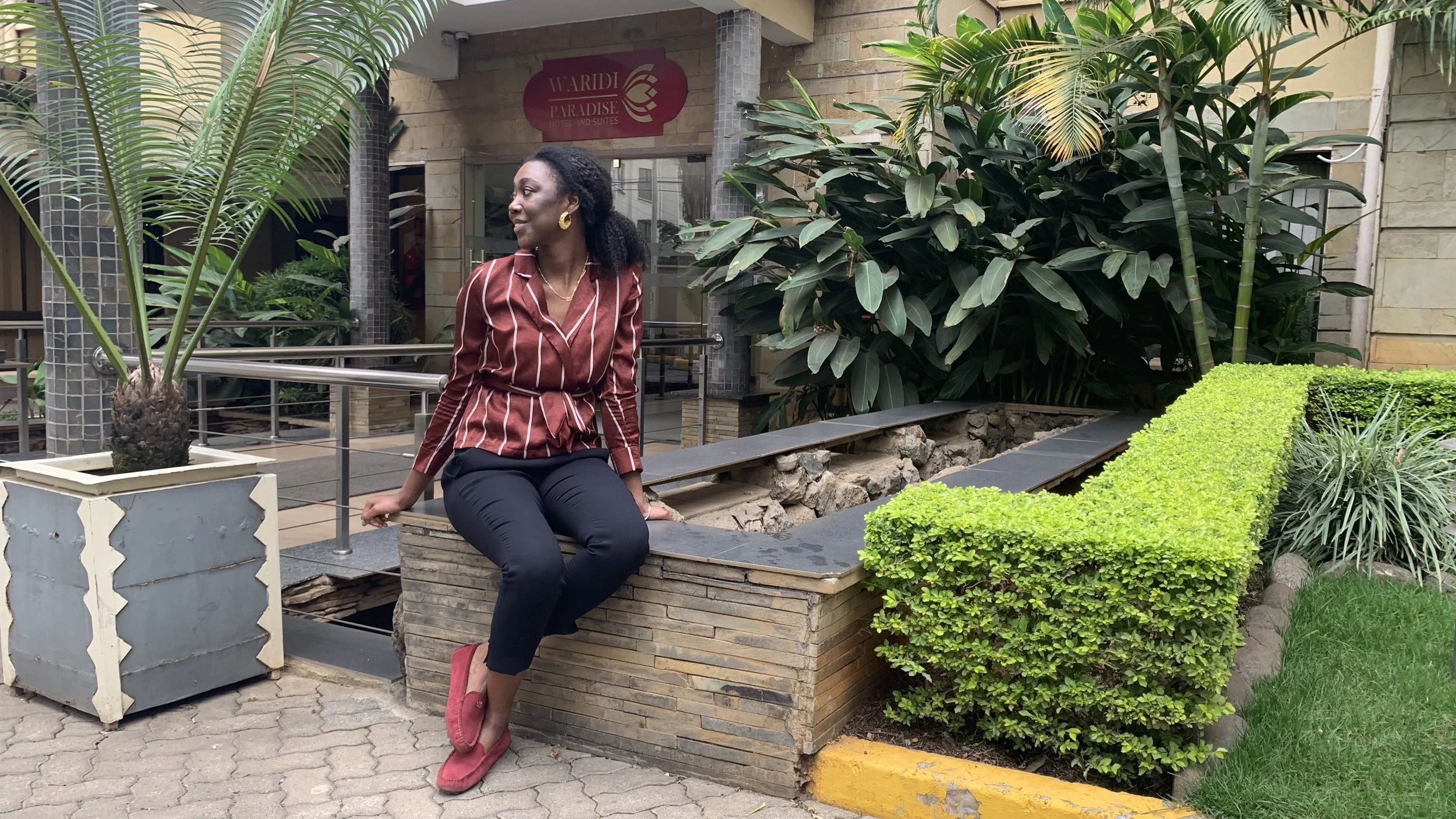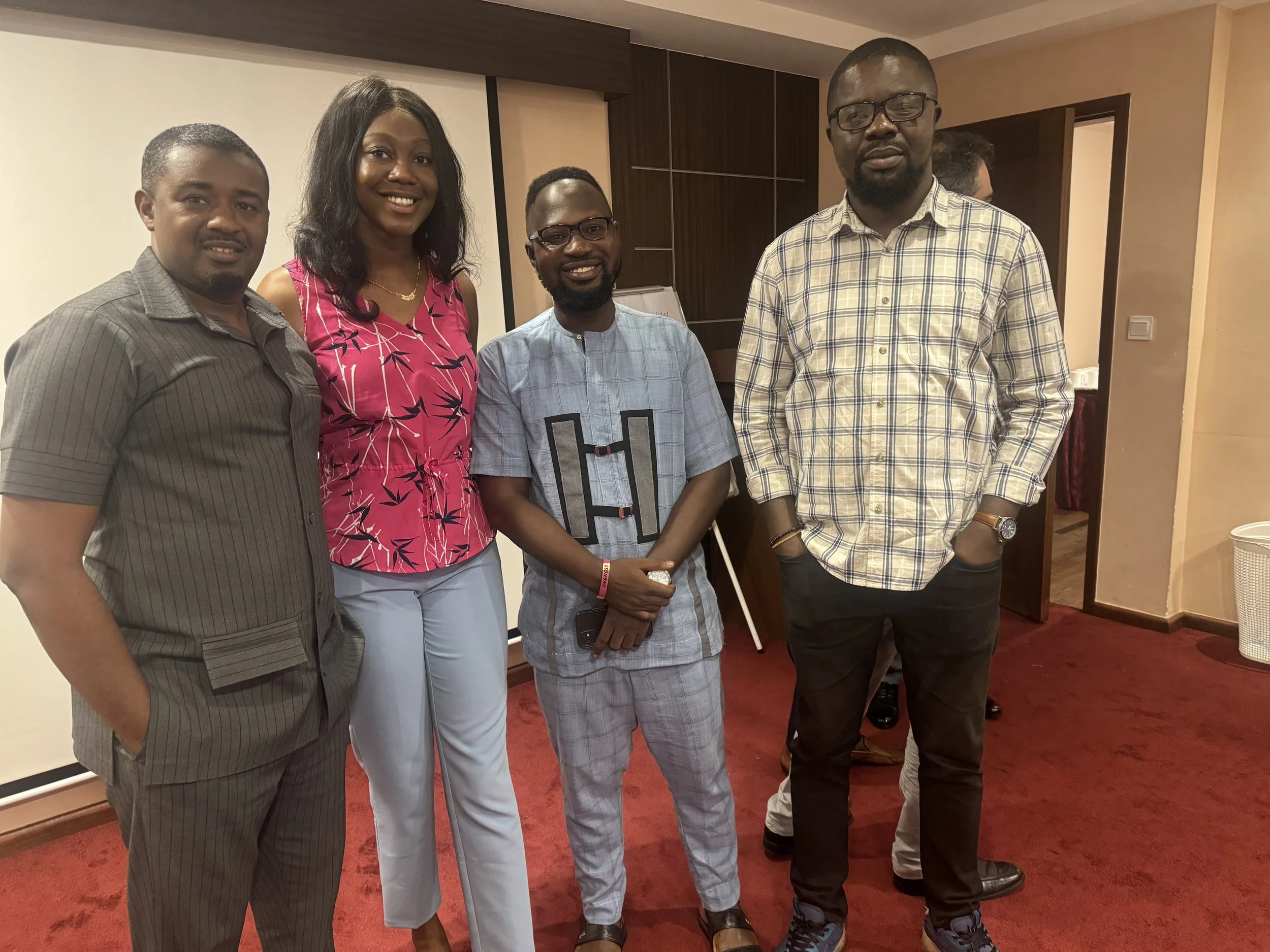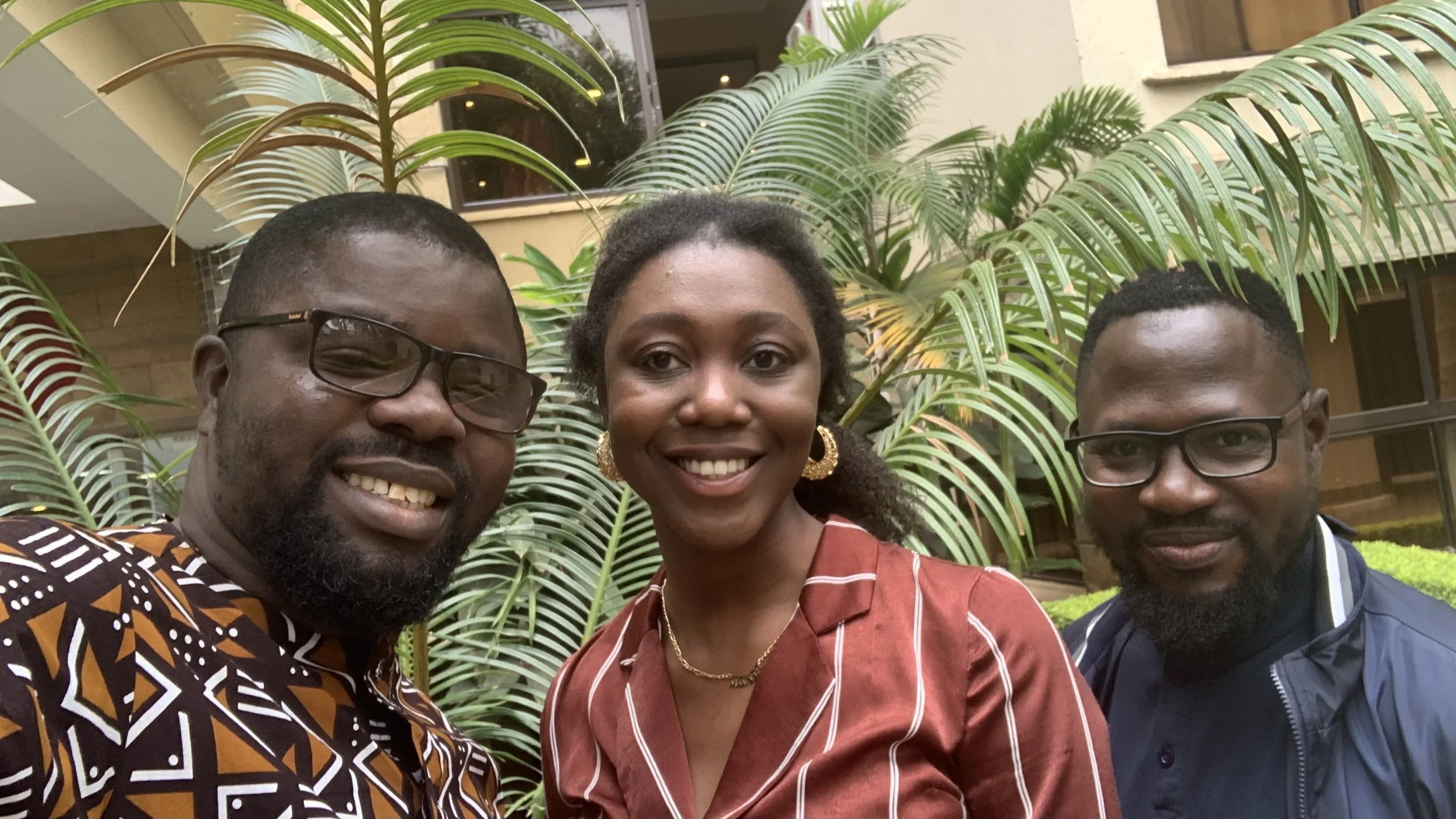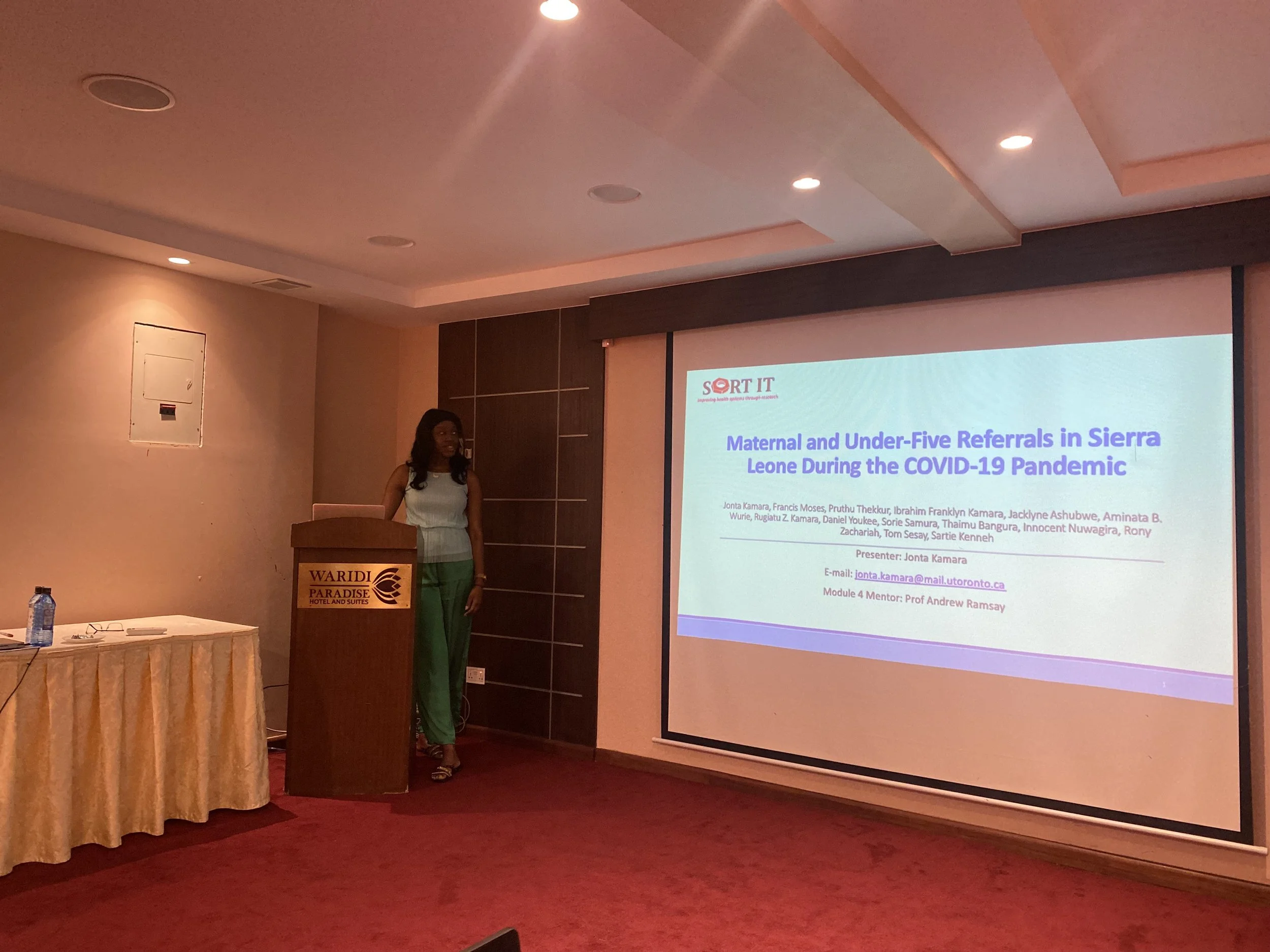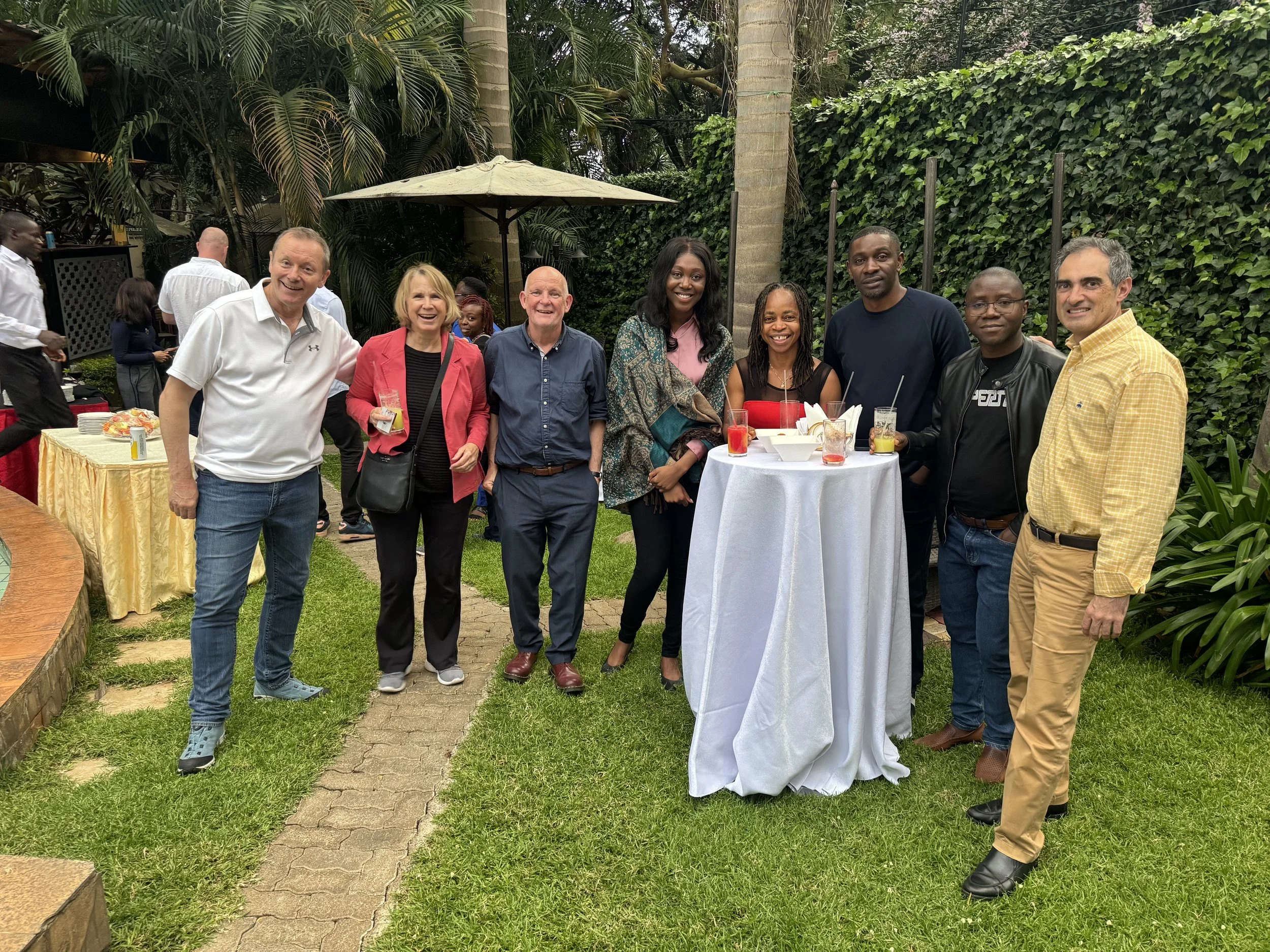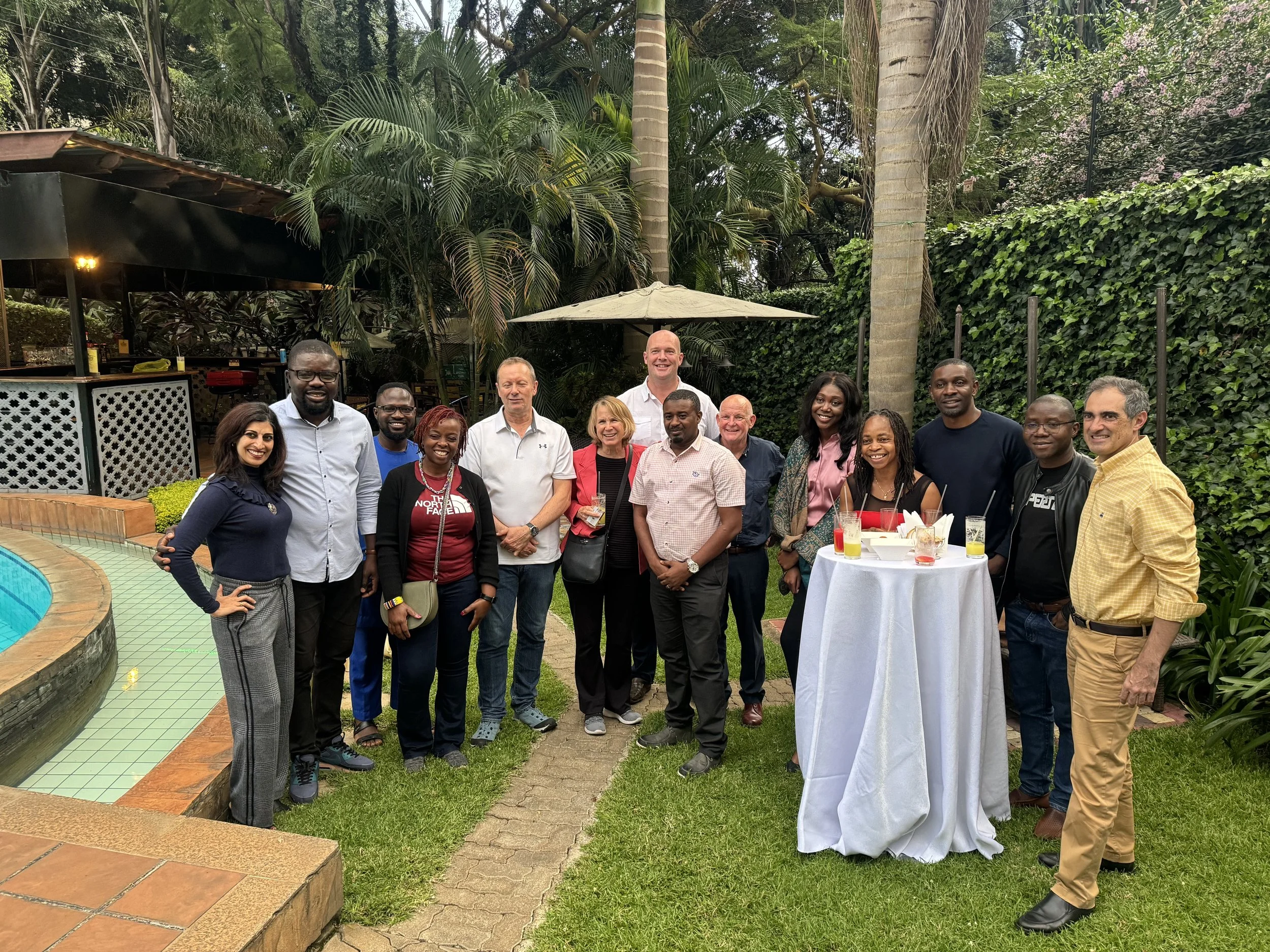Hey Africa, let's invest in data systems & women researchers.
Jonta sitting on a ledge at Waridi Paradise hotel, where the training was housed.
As I started writing this post, it was June 2024 as I was finishing up my WHO-TDR SORT IT Research course. And yes, this post has been sitting in my drafts for almost a year now. I have more details about my course experience on my Jonta_Kam Instagram page “WHO-TDR SORT IT” highlights.
This course was initially started to ensure countries have the capacity to conduct operational research on diseases in the country. Operational research looks at how a system functions so the outputs of the research can lead to tangible changes to improve health care delivery and public health outcomes. Research questions have to be very specific to ensure tangible changes can be made. This is important as health systems generate a lot of data, and the right research questions need to be developed to ensure research can be used to make health system changes. The course seeks to ensure countries are “data-rich, information-rich and action-rich.”
If you are unfamiliar with SORT IT Courses, here is a quick summary of the courses and milestones.
Operational research and protocol development
▶Submission of protocol
▶ Submission of ethical review form
Data entry and analysis
▶ Submission of data documentation sheet
▶ Submission of proof of study completion and data collection
Scientific manuscript writing
▶ Submission of a paper to a peer-reviewed journal
Research Communication
▶ Submission of Technical and Lightning Presentations
▶ Submission of Evidence briefs
▶ Submission of Stakeholder maps
▶ Submission of scripts for pitches to engage with researchers and potential funders
My course was on emerging infections in West/Central Africa, where trainees conducted retrospective studies on COVID-19, Ebola, and Lassa fever. During the course, we discussed how beneficial it is that we have this opportunity, but since all the studies are retrospective, they can only prepare us for the next outbreak. Really, we should be able to conduct real-time operational research and also be able to manage and own the data infrastructure.
In March 2024, I wrote about the African Union Summit, where a key pillar is to ensure that 1% of African countries invest in research. This year’s Summit post is on its way! Research drives innovation and can help us solve our health issues. While global collaboration is welcome, it is important to ensure that each collaborator has a voice and there are no large power imbalances. I also think it is important for African countries to collaborate well with each other in addition to countries outside of the continent. COVID showed us exclusion in global markets, so it is important that we can support each other and come together as we are more powerful together!
Investing in research is important, but also ensuring gender equity in research should be the focus. I was grateful for the opportunity provided by World Health Organization TDR and partners. However as the only woman mentee in the course, and also originating from the diaspora, at times I questioned my place in the course.
This made me reflect on the differences in the public health workforce. In the diaspora, there are many women in public health, but few of us hold senior positions. On the continent, the situation is reversed, with men dominating both senior and junior positions. A note to professionals, particularly women and those underrepresented in organizations: Make sure you apply to opportunities even if you don't meet every requirement! Let potential employers make the decision rather than excluding yourself and limiting your opportunities.
While I had worked with the National Emergency Medical Services Team in Sierra Leone through my dissertation work remotely, I was not actively working in the institution, unlike the other mentees in the course. I listened to and had conversations with others enrolled in the training program about the impact of the lack of inclusion of women in health services design and the perception of employment equity or diversity initiative which ask to disclose gender identity. It was interesting to hear that some perspectives that if you tick a box indicating you are a woman, you will automatically get a position. These are similar conversations I have heard when it comes to ticking a race box. When people say phrases such as ”they only got the position because they are a woman” or “it is because they are Black,” it discredits the qualifications that a person has, especially as there is discrimination in workplaces meaning people have to put in a lot more work to be recognized just because of their gender or race or other factors.
Now let’s get to the data systems. Investing in data systems allows countries to own their data and manage them without having to reach out to another institution. Owning these systems also puts the power back in our (African countries) hands. To ensure African countries own their data, data infrastructure needs to be present, and people also need to be equipped with the skills to analyze the data. It requires collaboration between the government ministries, particularly ones that handle infrastructure and education, as improving public health requires collaboration within all sectors and levels of the government. This also helps us track if we have improved our health systems/policies, which is an important part of this course.
The course was a reminder that your work is not done when you publish a manuscript. Use this as evidence to suggest changes to health-policies/practices and promote health and wellbeing.
There are a couple of opportunities with the WHO-TDR which include academic scholarships and research scholarships. Check out this link for more information.
